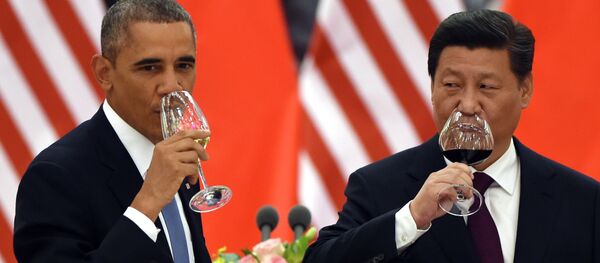After the massive data breach on the US Office of Personnel Management in June, intelligence officials in Washington were quick to blame the Chinese government. Without providing any evidence, James Clapper claimed that China is "the leading suspect."
Three months later, Clapper is still blaming Beijing, but still has failed to offer any evidence for his claims. Speaking before a House panel on Thursday, the spy chief urged for an increase in cyber security measures aimed at Beijing.
In response, the Chinese Foreign Ministry urged Washington to either provide a rationale for their claims, or cease with its accusations.
"We hope that the US stops its groundless attacks against China, start dialogue based on a foundation of mutual respect, and jointly build a cyberspace that is peaceful, secure, open and cooperative," Foreign Ministry spokesman Hong Lei said during a news briefing, according to Reuters.
The White House has already indicated that it may implement targeted sanctions against individuals and entities the administration believes to have launched cyberattacks against US companies. That possibility has already been criticized by intelligence experts as a hypocritical response from the US, given its own role in corporate espionage.
"The US government routinely claims that it doesn’t spy for economic reasons, yet it usually finds 'strategic' reasons to get the same information," J.J. Steinberg, senior editor with the Executive Intelligence Review, told Sputnik.
Earlier on Friday, the Chinese government expressed hope that cybersecurity cooperation between Beijing and Washington was possible.
"We hope China, the United States and other countries could work together to work out the rules for cybersecurity in the international arena in the spirit of mutual respect, equality and mutual benefit," Chinese State Councilor Yang Jiechi told China Daily.
While China certainly seems willing to come to the negotiating table, Clapper’s comments could be an indication of Washington’s stalwart opposition.
"Maintaining cyber security should be a point of cooperation rather than a source of friction between both China and the United States," Hong said.




